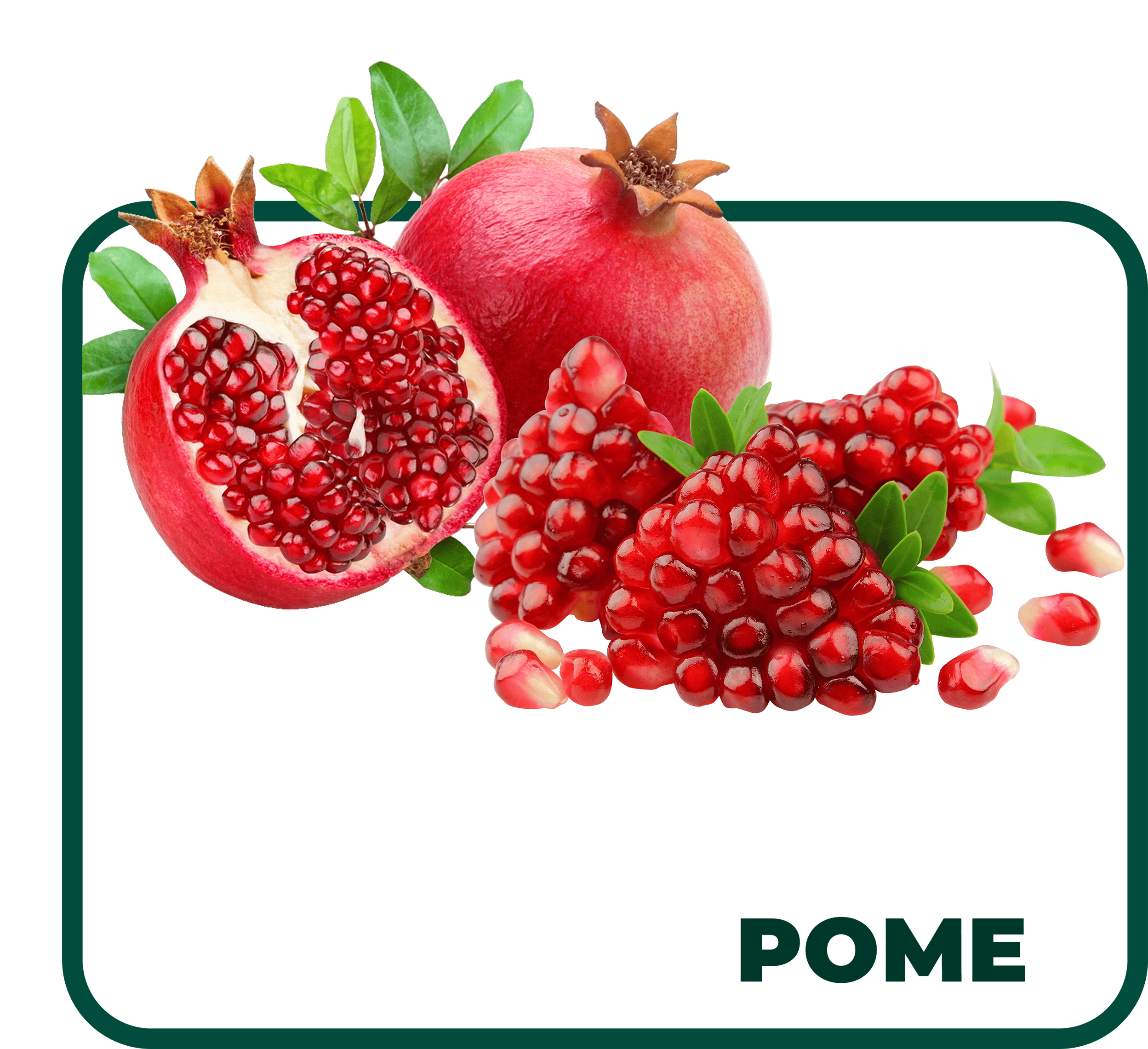
Pomegranates
Egyptian pomegranates are renowned for their striking ruby-red arils and tangy-sweet flavor. The fruit features a tough, leathery skin that encases a multitude of jewel-like seeds, each filled with juicy, flavorful pulp. Pomegranates are valued for their unique taste and are used fresh, in juices, or as a garnish in various dishes.

Pomegranates are a nutritional powerhouse, rich in vitamins C and K, which support immune function and bone health. They are also high in antioxidants, particularly punicalagin, and anthocyanins, which help combat oxidative stress and inflammation. Additionally, pomegranates provide dietary fiber, which aids in digestion and promotes overall gut health.
Eating Egyptian pomegranates can enhance immune defense, improve cardiovascular health, and aid in digestion. Pomegranates contain antioxidants that can help diminish inflammation and shield cells from harm, which might decrease the likelihood of chronic illnesses. Additionally, their fiber content supports digestive health and could aid in managing blood sugar levels.
Pomegranate trees are typically planted in early spring, as they require a warm climate and well-drained soil. The fruit begins to develop in the summer and is usually ready for harvest in late summer to early autumn, from September to November. Harvesting involves carefully picking the fruit when it has reached its full color and is slightly firm to the touch, ensuring the best quality and flavor.
